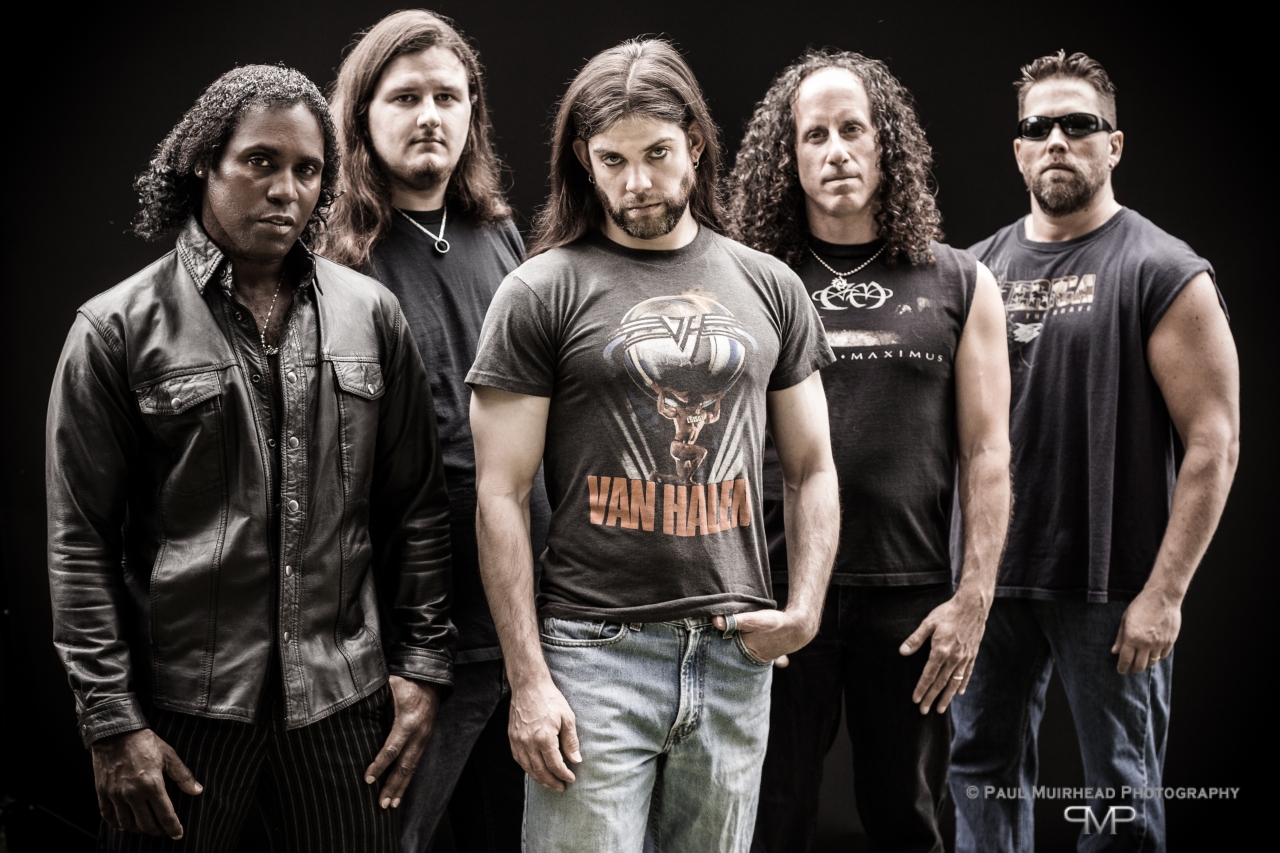ODIN’S COURT – The Progressive Justice


Interview with Matt Brookins
1. Please introduce the band to our readers
I would say Odin’s Court is a combination of the rock, metal, and progressive genres, with a lot of other aspects sprinkled in. In terms of what other bands we many sound like, I tend to agree with many of the recent journalists who have reviewed our newest album: we have a distinct sound of our own where inspirations such as Dream Theater, Pink Floyd, Porcupine Tree, King’s X, Iron Maiden, Devin Townsend, Rush, Yes, and moremay be heard.
2. You have a new album coming out, please share with us all the details.
Our new album is called Turtles All the Way Down. It is a concept album dealing with mankind’s quest to understand our place in the universe. More specifically, how an individual may attempt to analyze, process, and cope with our surroundings and origins. The title speaks to infinite recursion, or to say it another way, every time a perceived problem is solved, a new problem is introduced.
3. The artwork of your album is amazing, what is the concept behind it?
JP Fournier did the art. He has worked with many great bands in the past. I came up with the art concept that supported the album’s theme, and I provided JP with a detailed write-up. We went back and forth over email discussing the ideas and refining things to arrive where we did. When it comes to giving the meaning of something, in this case the meaning of the art, I am a firm believer in the Roger Waters approach – something means whatever it means to you, regardless of the artist’s original intent. So I don’t want to say what the exact meaning behind the art may be from my perspective, but I will say it contributes to the quest of finding your place in the universe. In the case of the artwork, we see gods and other celestial beings rather than humans, but the same theme applies in their case.
4. How do you see the current status of progressive music?
From my perspective, it is a though market. While there are obviously a lot of passionate fans of various progressive styles, as a whole, the patience it takes to listen to progressive music and acquire the taste or reward is not always something people in today’s society may have, or even want to put forth. I see pop, commercialized, and manufactured music becoming more and more prominent across genres with the sole purpose to make money. I prefer music as a form of art. I’m happy that so many bands and fans in progressive music still support music as art, but it seems that population isn’t as large as it used to be, for various reasons.
5. What would you consider as progressive in the year of 2015?
This is a hard question for me, as I believe there may not be a clear definition of progressive music – or at least, what is considered to be “progressive” has evolved and changed over the years. There aretraditional qualities of the music genre itself, there are offshoots, and there is a perspective that “progressive” may mean the music constantly changes and evolves. I think we have all those aspects in our music, and each album may have more or less than others. For me, I like “progressive” music these days that may push the boundaries and defy the parameters that must be met to be “progressive.”
6. What does the name of the band represent?
I’m sorry, but this will be a rather boring answer. The band name really doesn’t mean anything…when we started in 2001, we were some guys jamming in the garage having fun. We wanted a name that both sounded “cool” and signified we were a “group” versus being centered around a particular individual. We had a long list, and after much discussion, Odin’s Court was the decision. In retrospect, I’d probably pick a different name, as I think the name gives people a certain expectation about the music that we don’t generally meet because our style is different than what they may expect. On the other hand, we have had many people talk about how excited and surprised they were when they heard us, as they expected one thing and got something they liked even better.
7. Are you going to tour for the album?
We are doing a short string of US dates in early May 2015. We would absolutely LOVE to tour Europe, so if any promoters out there are interested in helping us put something together, we’d love to hear from you. Aside from album sales, since we haven’t toured outside the US, it is hard to gauge where the most interest in us may be.
8. What is the most commercial aspect of the band at the moment? Merchandise? Live Shows? Album sales?
I like this question, as I’m sure many music fans wonder how bands make ends meet in this day and age of piracy and declining show attendance. Our new album just came out, so this may not be a completely fair comparison given the timeline, but the single largest contributor towards covering our expenses for the new album was our crowd sourcing campaign through (and outside of) Kickstarter. I don’t know if crowd sourcing is the way of the future or will stick around, but it certainly helped us out tremendously. If I ignore crowd sourcing, the rest has been pretty even so far. Show revenue, merchandise sales, and album sales have all been about the same proportionately since the album was released.
9. How different is your current album from the previous albums?
We attempt to maintain a “core” sound, but make each album be its own thing. I don’t see the point in “remaking” the same album, so the sound on this one is different than previous albums. I think the newest album is more refined and catchy. It is a little more upbeat and happy at times, also. But it still has our signature sound on it, and it still has plenty of dynamics and complexities.
10. What are the main difficulties that you face as a band?
One is geography. We are located in cities up to 3 hours apart from each other. So that can be a challenge when it comes to rehearsals or recording. Though I am not complaining, as I know there are other bands where members are across various countries, so it could be worse.
Another is trying to get new people to check us out who may not have previously. We are getting great press with the newest album, and people who have heard it love it. So trying to get new people to give it a chance and “discover” us, that is a challenge.
11. Indie or Label owned? What are the advantages and disadvantages?
I think both have their advantages. If on a label, it obviously depends on the label. When we were on ProgRock Records, which is an independent label, we ourselves operated very independently. The label was supportive, but they didn’t constrain anything we wanted to do. I have friends in other bands where I have heard things – for example, their label wanting them to rerecord an album they may have done on their own, at a studio of the label’s choosing. In this day and age, unless a band is on a label with a good solid pre-established network for distribution, PR, with contacts, etc., I’m not sure if is worth it. Independently, you just have to know what you need to do, but you can achieve things on your own to the same level you may be able to with a smaller label. It is an incredible amount of work, but you just outsource certain aspects to the right people or organizations. We were on ProgRock for a solid 6 years, but with the latest release, we went independent. I think the lay of the land is different now than it was 10 or even 5 years ago. The industry has been suffering, so no matter what option a band takes, they are in for a lot of work and hardship…so they’d better love their music and sharing it with the world. We certainly do.
Information: www.odinscourtband.com


